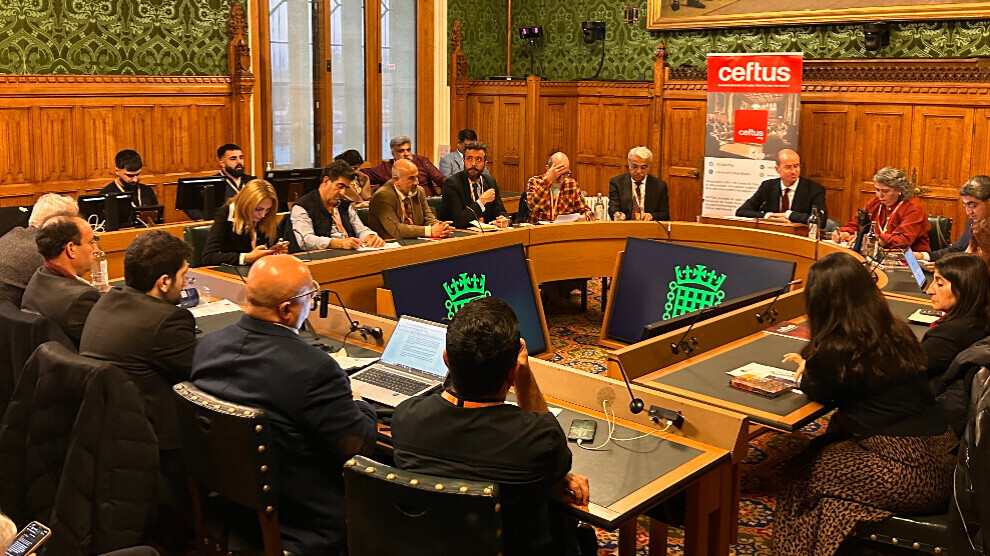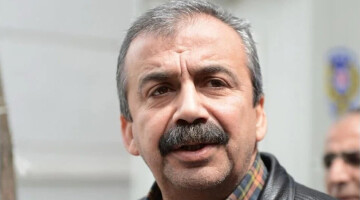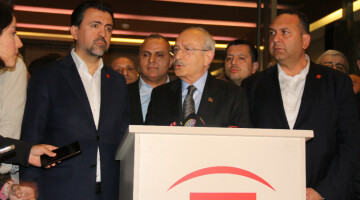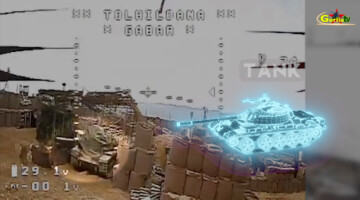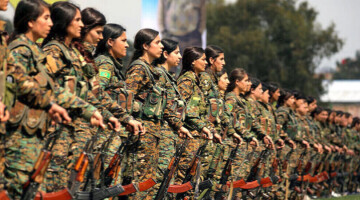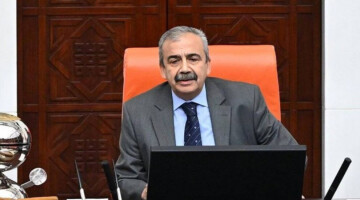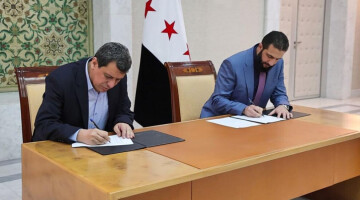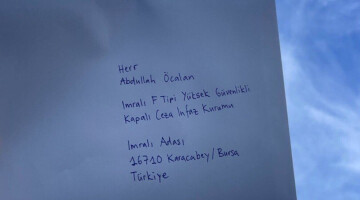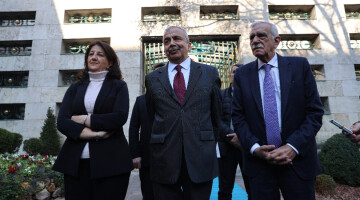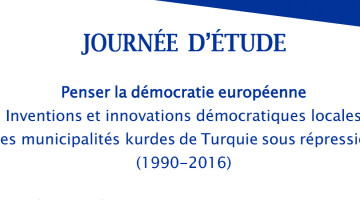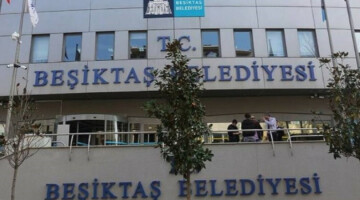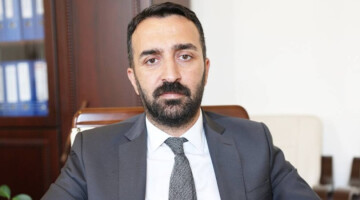The Center for Turkish Studies (CEFTUS) organized a panel discussion titled 'The peace process in Turkey, current developments and future prospects' at the British Parliament.
The panelists included DEM Party MP and former Co-Chair of the HDP, Mithat Sancar, former Dersim Mayor Nurhayat Altun, who was recently released from prison, and DEVA Party MP Mehmet Emin Ekmen.
The panel discussion was moderated by Lord Matthew Elliott and attended by many writers, academics and politicians.
CHP MP Sezgin Tanrukulu and AKP MP Galip Ensarioğlu did not attend the panel as expected for different reasons.
DEM Party MP and former HDP co-chair Prof. Dr. Mithat Sancar, who is an important figure in the field of conflict and resolution processes, spoke about the process that started with MHP leader Devlet Bahçeli’s call on October 1 and continued with Abdullah Öcalan’s 'Call for Peace and Democratic Society’ on February 27.
Mithat Sancar noted that this process is unlike any of the conflict resolution and peace processes that have been experienced in the world so far and said: “It is difficult to name this process for now, and it is a situation in which this discussion may become a little clearer. The fact that the process is unlike any previous cases in the world but, on the contrary, sets an example, has important consequences. The most important is that it has entrusted the resolution and the construction of peace to the political sphere and to social actors.”
Who will establish this peace and democratic society?
Pointing to Öcalan’s 'Call for Peace and Democratic Society’, Sancar said: “First of all, the PKK will lay down its arms and dissolve itself. But who will establish this peace and democratic society? Then the main interlocutor and actor is the entire society, especially the political forces. Thus, many circles that until now did not see themselves as the main actor and the main responsible power suddenly faced the necessity of being at the center of this issue.”
‘The PKK wants to be in contact with its founding leader’
Sancar noted that if this process is successful, it will be recorded as a first example in the history of conflict resolution and peace processes in the world. Noting that the PKK needs to convene its congress in order to decide to lay down arms and dissolve itself, Sancar pointed out that the PKK wants to be in contact with its founding leader in order to convene its congress and that this is the nature of this work.
Sancar continued, “There are things that need to be done to reach the point of ‘laying down arms and dissolving itself’. After going through such an important stage, it is actually not difficult in today's conditions to realize the next stage or to achieve success. It is a natural necessity to create the conditions and make the environment suitable for this. And here, too, the government and the state have duties and responsibilities.”
‘There is a need to socialize the process and increase its democratic legitimacy’
Sancar remarked that in order for peace to become permanent, political processes must continue to function in order to eliminate the causes of the conflict, namely the Kurdish question. “Democratic political struggle must also be the main dynamic of positive peace, that is, of making peace permanent. Kurdish peace is important. There are undoubtedly difficulties and obstacles, and they will emerge as this process unfolds. A process is being carried out with one foot in Syria and the other in Turkey's internal political balances. There are various actors and forces inside and outside the country who want to disrupt this process. In order to overcome these obstacles, there is an important need to socialize the process and increase its democratic legitimacy.”
Sancar said he believes that the sceptical and worried segments of society will want to deepen the process with more constructive contributions as it progresses towards peace.
‘The new process has a unique and original method’
DEVA Party MP Mehmet Emin Ekmen made a presentation titled 'Legal and Political Framework for Conflict Resolution'. Ekmen said that the DEVA Party supports the use of conflict resolution means to end armed struggles and that they support this process as the 13 other initiatives that Turkey has tried in different periods. Ekmen stated that the new process has a unique and original method that is not similar to any of the 13 processes the state has tried. He said they believe that this latest process is more likely to yield results than previous attempts due to the role played by Bahçeli and regional developments.
Ekmen pointed out that the root causes of violence must be eliminated and added: “As long as the root causes remain, we are concerned that even in cases where an organization is eliminated, new ones will emerge in its place.” Emphasizing the importance of the legal and political framework, Ekmen said it was valuable that Devlet Bahçeli made the process visible.
Ekmen stated that the most important distinguishing feature of this process was that all parties in the parliament, except one, supported it at different levels. He noted that the trust and legitimacy of the process, which gained publicity with a very contrasting figure like Bahçeli, developed not through Erdoğan but through Bahçeli. He added that the DEM Party has successfully carried out the bridge role assigned to it since October 1, when the process became visible.
‘Parliament will have different roles in such a process’
Ekmen emphasized the importance of the legal framework of the process and mentioned the role of the Parliament. Noting that the Parliament will have different roles in such a process, Ekmen made the following suggestions: “First, a framework law on the management of the process and some legal guarantees for the implementers should be provided. Second, a legal framework should be established for the liquidation of the organization's cadres, such as the Law on Returning Home. The third is to make legal and constitutional arrangements that will expand political and democratic spaces and increase rights and freedoms.”
‘Armed conflicts not only cause loss of life and property but also erode social values’
Nurhayat Altun, former Mayor of Dersim, gave a speech on local governments in the conflict and resolution process. Noting that armed conflicts not only cause loss of life and property but also erode social values, Nurhayat Altun explained the local government approach of the Kurdish political movement. She said that local governments have a responsibility to create a moral and political society to replace the eroded social values and added: “We have undertaken the pioneering work to democratize the society and our local governance policies have transcended the bans and denials during the conflict processes.”
Nurhayat Altun stated that their local government paradigm is a democratic, ecological and women's libertarian line and that within the scope of this paradigm, they are weaving a new system in local governments in many areas, such as the co-presidency system, women's departments, women's institutions, multilingualism, the right to self-representation of differences and human rights.
‘The will of the people is usurped through trustees’
Altun touched upon the trustee policies and the oppression caused by the central system in the country while they were trying to put this paradigm into practice. She remarked that the will of the people was usurped through trustees because their work disturbed the central administration, which went as far as to arrest them with baseless allegations and put them in prison.
Nurhayat Altun also emphasized the role of local governments in building a peaceful process: “It is not only the productions of one party that are being plundered there, but the basic values of the whole people. In that respect, arresting us meant 'you are not from me'. We were approached like an 'enemy' and the law was applied accordingly. I served 7 and a half years in prison and there were no allegations against the municipality. The way we were tried was also unlawful.”

